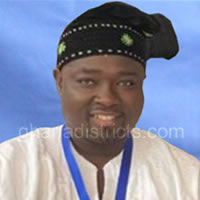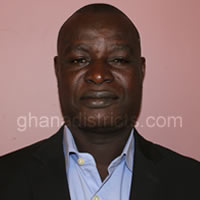There is a positive Correlation between Education and development. Illiteracy levels is universally accepted as one of the major parameters for measuring development. In Ghana, this is clearly manifested in the three northern regions where illiteracy remains high. Education is therefore rightly regarded as the key to development. The district currently has fifty-eight primary schools, six Junior Secondary Schools and no Senior Secondary School. It also has twenty pre-schools.
State of school infrastructure
School infrastructure is still at its ebb. Out of the fifty-six primary schools, thirty two (32) are in temporary structures (mud, open pavilions, huts and sheds), with twenty-three (23) being permanent structures. Most of the permanent structures are 3-Unit classroom blocks whilst eight (8) has 6 Unit classrooms and above. the six (6) Junior Secondary Schools in the district, three are 3-unit classroom blocks and three have no classrooms - classes are conducted in shared structures with the primary schools.
Teachers Accommodation
Only nine schools have accommodation for teachers. The accommodation can house only 6 teachers; so in effect only 54 teachers in the district have accommodation. The district has a total enrollment of (children in school) of 9,765, made up of 2,066 for the Pre School, 6,885 for the primary school and 841 for the Junior Secondary School. The total enrollment figure, shows a remarkable increase of 46.7% so from the 2004/2005 figure of 6,655.
Access and Participation
To enhance the ownership and management of education at the community level, communities have partnered the schools in the formation of Parent Teacher Associations to support the management of schools. The FCUBE concept goes further to establish School Management Committees and District Oversight Committee (DEOC). The DEOC though formed is yet to be inaugurated in the district and made functional.
Community structure which supports the management of schools in the District includes the following
- The District Education Oversight Committee (DEOC)
- The District Education Planning Team (DEPT)
- The School Management Committee (SMC)
- Parent-Teacher Association (PTAs)
Girl Child Education
In the last few years girl child education has received attention from development partners. In particular, UNICEF, School for life. World Vision Ghana have supported the Girl Child in terms of sponsorship and supply of uniforms, books and bicycles. The World Food Programme is also supporting with the provision of food. In order to enhance teaching and learning in the district, the District Assembly has over the last two years sponsored the training of potential teachers who are citizens of the district to Teacher Training Colleges. It is also sponsoring eighty-seven pupil teachers for the ’modular programme"
Students Performance at the BECE
The performance of students at the BECE for the past two years has been very poor. The district under the Gushegu-Karaga district has occupied the bottom of the performance table for the 2004 and 2005 academic years. In 2004, total of 96 students qualified for entry into the Senior Secondary School (6-30); this number dropped to 88 in 2005. In 2004, 45 girls qualified as against 81 boys whilst in 2005, 27 girls obtained the qualifying mark as against 61 for boys.
The current educational policy in the country revolves round the FCUBE concept in line with the MADG. The concept has three main components, etc.
- Management for efficiency and effectiveness
- Access and Participation
- Effective Teaching and learning
Management for Efficiency and Effectiveness
This focuses on the structure of the district directorate and its supervisory activities.
- The Director - the administrative and technical head
- Four departments help the director in the management of education in the district
- Statistics and research
- Planning and Budget
- Administration and Manpower
- Supervisory Division
The statistics unit is responsible for date collection and processing for decision making. The planning and budget unit is responsible for planning education in the district as well as for budgeting for educational needs of the district. The supervisory division, periodically undertakes supervision and monitoring of schools, teachers and performance of pupils and the educational system in general. Currently the unit has five (5) Circuit supervisors.
Key Development Issues in Education
- Inadequate school infrastructure (school blocks and teachers accommodation)
- Inaugurate trained teachers
- Lack of effective supervision of schools
- Inadequate teaching and learning materials
- In adequate Junior Secondary Schools (only two Area Councils have access to JSS) certain structures have also been established to ensure effective implementation of education policy.
Date Created : 11/18/2017 5:34:25 AM




